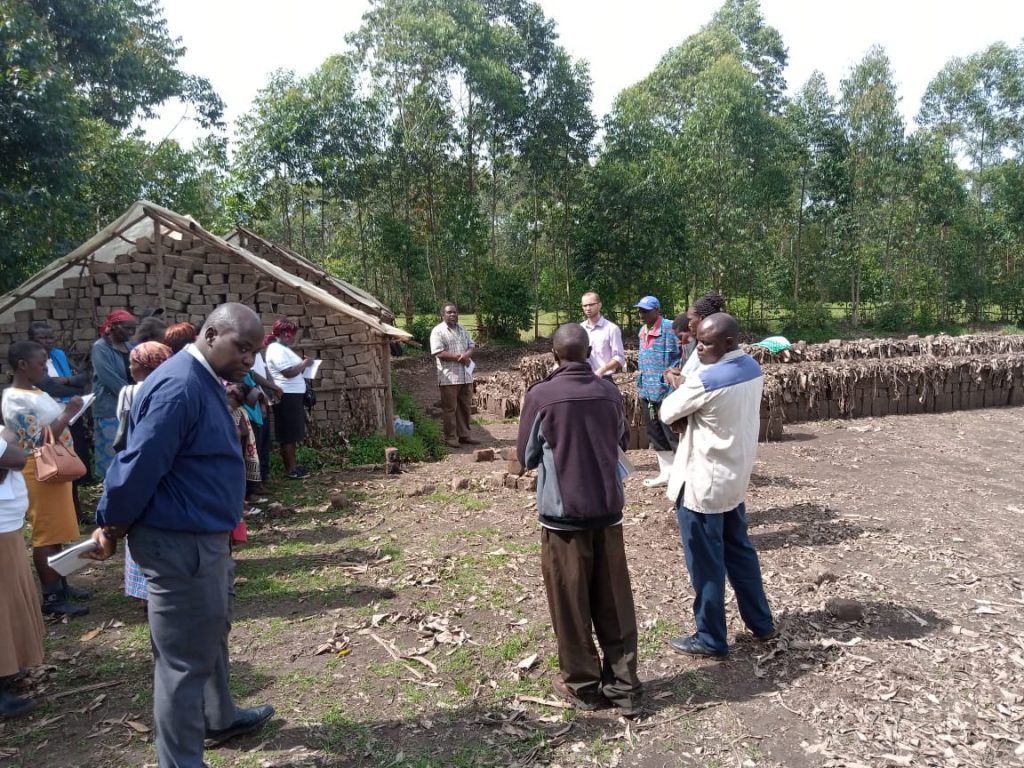When he first heard about the coronavirus in early February, Liam Thorne was working as a monitoring and evaluation fellow supporting health programming in Kisii, Kenya.
“Initially, it was something that appeared to be happening so far away. At the time, I didn’t expect COVID-19 to have the impact it now has on our world,” he says. In February, Kenyan news was more focused on locust swarms spreading through the country, devastating crops and threatening food security in the region.

That focus quickly changed when the first suspected case was reported in Nairobi, and Kenya’s President Uhuru Kenyatta delivered an address to the nation about COVID-19. Seemingly overnight, fears about locusts were compounded by daily updates and stories of coronavirus.
“There was the very real knowledge that, should COVID-19 reach Kenya, it could have a significant impact within the communities I’d been working with during my placement,” Liam says.
According to the Red Cross, East Africa is currently facing a “triple menace” of mutually exacerbating disasters, as ongoing heavy rain hampers attempts to deal with swarms of locusts in the midst of the coronavirus outbreak.
Preventative measures against COVID-19 were put into place in Kisii, but in the early days Liam sensed a good deal of apprehension and worry from people he had interacted with regularly for over half a year. His neighbours struggled to balance work with children who were now indefinitely home from school. Shop keepers worried about the impact these preventative measures may have on their business.
The health professionals Liam usually worked with also had their own share of concerns. “They lamented the limited personal protective equipment (PPE) they had, often hoping beyond hope that COVID-19 doesn’t spread to harder-to-reach communities,” Liam says.
Aga Khan Foundation Canada, with support from Global Affairs Canada, has been able to provide much-needed PPE, as well as training for healthcare professionals and CHVs in the region. These interventions are helping keep communities and healthcare workers safe by providing the tools and skills they need to contain community spread, stay safe, and address fears and myths about the virus.
After Liam’s AKFC fellowship ended in February, he was hired by Aga Khan Foundation to continue supporting programs in the region. As COVID-19 intensified, Liam had also started working from home in Kisii, but rapidly changing travel advisories meant he had to return to his parents’ home in France.
While much of his work can be done remotely, Liam says his new reality has changed his ability to interact with project staff and beneficiaries.
“A large part of my work revolves around documenting and collecting stories of change… I am still trying to find better ways to do this from a distance,” he says. “While the work I do has been affected, I also recognize that I am in a privileged position, being able to continue working, and having affordable and good quality health care.”
As he continues to support health programming in Kenya remotely, Liam says we can all do our part to prevent the spread of COVID-19. Many already are, through practicing social distancing, using face masks, washing hands, and limiting unnecessary travel within communities.
He also encourages everyone to reach out and find ways to help others who are more at risk, if we can.
“Lastly, each of us have the responsibility to be careful about the news and information we share,” Liam says. Doing so can help curb rampant misinformation, and prevent causing unnecessary alarm and distress to others.
The global pandemic has shown us how the world is interconnected. Liam challenges us to think about the kind of world we want when we leave the pandemic behind.
“In these times, it’s important for us to be looking beyond the little worlds we each live in, and out at those that this pandemic is affecting most seriously and strongly, both near and far,” says Liam.
Liam Thorne was part of the 2019-2020 cohort of the International Youth Fellowship program offered by Aga Khan Foundation Canada. He was placed in Kisii, Kenya.
Financial support:

